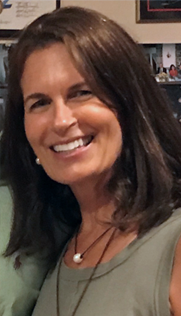
Saturday, October 23, 2021 (Listed under Publications)
Earth has been described as the Goldilocks planet because of its perfect chemical, physical and biological balance. But that balance is changing because of climate change.
The well-funded climate misinformation campaigns, designed to distract and delay progress on renewables by doubting science and scientists is unfortunate. As Michael E. Mann writes in his latest book, The New Climate War: The Fight to Take Back Our Planet, "Undermine the public's trust in scientists, and you undermine their message.” I encourage you to read Mann's book, which can be ordered here.
Well-funded front groups initially positioned climate change as a hoax. When the impacts of climate change became all too real to ignore, the tactics shifted to distraction, delay, and division. Regardless of the strategy deployed, it has led to what Mann describes as an “erosion of normal social discourse.”
As Mann makes clear, the voices and actions of the youth climate movement have, however, provided much hope about the future. They also provide a convenient opportunity to open the discussion of climate change with children.
From Greta Thunberg, who, at the age of 16, became an iconic global representative of the youth movement, to Alexandria Villasenor who, at 14, skipped school every Friday to protest in front of the UN and co-founded the U.S. Youth Climate Strike and Earth Uprising Groups, to Jerome Foster, who, at 18, founded The Climate Reporter, these kids are making a difference. They have literally put climate change action on the front page of newspapers.
When young readers are equipped to understand the fundamentals of climate change and the difference between renewable energy and fossil fuels, they are more likely to share the science with others, making them important thought leaders in the "fight to save the planet."
Moreover, knowing how renewable technology works, where it's deployed around the globe, and how it can help to restore the natural balance of the planet, empowers kids to develop a fact-based vocabulary around one of the world's greatest challenges. A great resource for these conversations with kids is my new book, Planet Power: Explore the World's Renewable Energy, which can be purchased here.
Another way to engage younger readers on climate change and renewable energy is to explore where their electricity comes from (both at home and at school) and whether there are companies offering wind, solar and/or waterpower electricity packages. My son learned the facts about renewable energy provider, Green Mountain Energy Company, back in 2004, when he was eight years old. We made the switch to Green Mountain then and have always taken pleasure from the fact that we are supporting the jobs and businesses that make electricity from spinning wind turbines.
Deciding together where your electricity comes from is one way to build bonds of communication and exploration. And that's just the beginning. Our switch led to other energy conversations, including the price of gasoline, why polluters are still subsided, and how renewable energy can liberate people in rural villages, island nations and emerging nations around the world.
Young communicators may want to write to their local officials or the regional energy company requesting that more renewable energy be built in their community. They may also want to interview climate scientists to expand their learning process.
In addition, important conversations at home and at school can revolve around the defense of science, why the work of scientists is important to our collective well-being and how experts not only work hard in school to learn what they teach us, but they also help to shape the future by making their own contributions. Sometimes it's a new way of modeling weather patterns and sometimes it's research into the way businesses are impacting the air we breathe and the water we drink. There are so many ways that science impacts our every day lives.
Being an active citizen is an important character-building exercise and something even very young kids can learn. As evidenced by the global youth climate movement, children and young adults can play an important role in holding leaders accountable for environmental progress. Looking back in time, Mann points out that it was students who ultimately brought an end to Apartheid, and it was public pressure and fastidious research that exposed the cigarette industry for its harmful concealment of cigarettes' health risks.
You'll find that these authentic conversations about the environment and energy will be some of your most important opportunities to shape the minds of young thinkers and doers. Once you're warmed up, take your child to vote and ask them what they think about the issues. You'll both learn something new. And—as it is for technology and science—learning anything new together is always so much fun.
Facebook | Twitter | LinkedIn | Email
Powered by 100% Wind Power!
© 2026 Dallas Writer. All Rights Reserved.